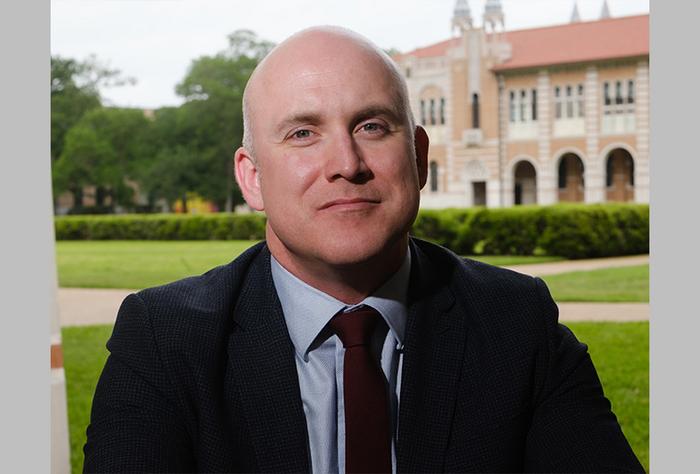Workplace Mental Health Funding Falls Short of Expected Outcomes
Research presented at the recently concluded 2025 European Congress of Psychiatry has uncovered alarming trends concerning workplace mental health, especially highlighting the paradoxical situation where increased funding and focus on mental health initiatives have failed to yield the expected benefits for employees. This revelation emerges from a comprehensive analysis of data spanning a period of […]


Research presented at the recently concluded 2025 European Congress of Psychiatry has uncovered alarming trends concerning workplace mental health, especially highlighting the paradoxical situation where increased funding and focus on mental health initiatives have failed to yield the expected benefits for employees. This revelation emerges from a comprehensive analysis of data spanning a period of two decades, involving over 19,000 participants and examining critical aspects such as job stress, employee autonomy, and generational resilience.
In recent years, organizations worldwide have redirected substantial financial resources toward enhancing mental health at work. Despite these investments, employees continue to report escalating workplace pressures coupled with diminishing autonomy over how they engage with their tasks. The findings illustrate that while individuals feel they have more flexibility in deciding when to work, they have less control over how they perform their duties, leading to heightened stress levels and anxiety.
Particularly concerning is the growing prevalence of mental health issues among younger workers, notably millennials. The data indicates that this cohort reports significantly lower resilience to workplace stressors in comparison to their predecessors from Generation X. This generational shift in coping mechanisms amidst escalating job demands underscores the urgent need to reassess how mental health initiatives are designed and implemented within work environments.
One study finding reveals that over two decades, employees increasingly perceive their work as being unexpectedly stressful and complex. This complexity is accompanied by a fear of job-related illness, which serves to exacerbate mental health problems. As workplace demands rise, a worrying trend also emerges where millennials showcase vulnerability when facing job-related stresses, demonstrating less capacity to manage these pressures than older generations did at the same age.
Central to the discussion of mental wellness at work is the paradox that, despite significant funding and improved regulatory frameworks aimed at safeguarding employee well-being, metrics of mental health continue to decline. The heightened focus on mental health initiatives appears to be overshadowed by the realities of the contemporary work environment, where the risks associated with high job demands have risen sharply. Notably, employees express a yearning for enhanced autonomy and control, yet the current paradigm seems to provide diminishing returns when it comes to mental well-being.
Professor Nick Glozier from the University of Sydney, leading the study, noted the worrisome correlation between increased job demands and deteriorating mental health among the workforce. He posits that the landscape of work itself may have changed fundamentally, leading to a scenario where employees, irrespective of age, experience greater difficulties in managing workplace demands. This realization places significant pressure on employers, insurers, and policymakers to address the exacerbating rates of mental health issues and disability in the workforce.
Further complicating the issue is the generational perspective on work demands. While both millennials and older cohorts acknowledge increasing stress at work, the negative impacts are felt more acutely by younger workers. This generational divide invites deeper scrutiny into how workplace cultures may need to evolve to prioritize mental health effectively and authentically engage with the experiences of today’s workforce.
In light of these findings, experts are calling for a paradigm shift in the approach to workplace mental health. There is a consensus that more research and a critical reevaluation of existing funding strategies are essential. Current mental health support mechanisms must be analyzed to ensure they meet the actual needs of employees, particularly younger generations who appear more susceptible to stress-related illnesses.
The research also unearths the complexities surrounding job satisfaction and skill enhancement. While employees report feeling more capable and are acquiring new skills, this positive aspect does not sufficiently compensate for the detrimental effects of stress and reduced autonomy. These findings indicate a need for a balanced approach that fosters skill development alongside comprehensive mental health support to navigate the changing work landscape.
As conversations around mental health in the workplace continue to evolve, stakeholders must navigate this multifaceted issue with sensitivity and an evidence-based approach. The risks of neglecting mental health insights could lead to more significant consequences, not just for individuals but for organizations as a whole. The economic implications of mental health crises in the workplace underscore the pressing need to shift from reactive measures to proactive, innovative solutions.
As the European Congress of Psychiatry brings together experts to deliberate over these findings, it is evident that the road ahead requires collaborative efforts across sectors. Employers, employees, and policymakers must work together to cultivate a more resilient workforce capable of managing contemporary job demands while prioritizing mental well-being. The research presented serves as a catalyst for critical dialogue and action toward realizing sustainable improvements in workplace mental health.
The backdrop of the 2025 European Congress of Psychiatry serves as a reminder that mental health should always be at the forefront of occupational health discussions. Addressing this mental health paradox will require a concerted effort to understand and adapt to the evolving trends presented by modern workplaces. Only through intricate strategies that consider the individual experiences of all employees can the industry hope to rectify the current disconnect and truly enhance workplace well-being for generations to come.
Subject of Research: Workplace Mental Health
Article Title: Funding for Mental Health Initiatives Fails to Yield Results in the Workplace
News Publication Date: April 8, 2025
Web References: EPA Congress
References: 1. World Health Organization. (2025). Mental health at work. Available at: WHO Mental Health Fact Sheet
Image Credits: N/A
Keywords: Mental Health, Workplace Stress, Employee Well-being, Generational Resilience, Mental Health Initiatives, Europe, Workplace Demands, Job Satisfaction, Skill Development
Tags: coping mechanisms in the workplaceeffectiveness of mental health programsemployee mental health initiativesEuropean Congress of Psychiatry findingsgenerational resilience in the workplacejob stress and employee autonomymental health issues among younger workersmental health outcomes and investmentsmillennials and workplace stressworkplace mental health fundingworkplace mental health trends analysisworkplace pressures and autonomy
What's Your Reaction?

































